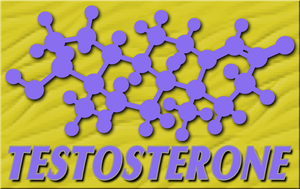Video Link: https://vimeo.com/290612854
Video Download: Click Here To Download Video
Video Stream: Click Here To Stream Video
Video Link: https://vimeo.com/290613607
Video Download: Click Here To Download Video
Video Stream: Click Here To Stream Video
The evidence is clear: A recent study has concluded that...
Testosterone Replacement Therapy (TRT) reduces the risk of severe adverse health consequences!
Are you thinking of trying testosterone replacement therapy (TRT), but have held back due to the fear of side effects? Think again.
A recent study published in The Journal of Cardiovascular Pharmacology concluded that testosterone therapy lowered the risks of cardiovascular disease and mortality. Also, the researchers discovered healthier levels of blood pressure, glucose, and lipids.
 “Testosterone therapy has been shown to reduce the risk of myocardial infarction (i.e., heart attack), stroke, and mortality in men with hypogonadism,” said Abdulmaged M. Traish, Ph.D., who conducted the study with several colleagues.
“Testosterone therapy has been shown to reduce the risk of myocardial infarction (i.e., heart attack), stroke, and mortality in men with hypogonadism,” said Abdulmaged M. Traish, Ph.D., who conducted the study with several colleagues.
The objective of the survey was to determine and measure the risk, safety, and benefits of testosterone replacement therapy concerning cardiovascular outcomes.
This objective required a long, placebo-controlled study of two groups of men. One group began TRT, and the other group did not.
The study was conducted with 656 male subjects suffering from low testosterone levels and displaying symptoms of hypogonadism (low testosterone).
The study group consisted of men with total testosterone levels of 12.1 nmol/L and symptoms of hypogonadism. In the treatment group, men (n = 360) received parenteral testosterone undecanoate (TU): 1,000 mg/12 weeks following an initial 6-week interval for up to 10 years.
Men (n = 296) who had opted against TRT served as controls.
Median follow-up in both groups was seven years.
At the beginning of the study, the men were measured for total plasma testosterone, hemoglobin A1c (a measure of long-term glucose control), fasting glucose, lipids, and other components.
The men were measured twice a year for the seven-year length of the study, and 7-year data were analyzed.
To account for baseline differences between the two groups, changes were adjusted for age, weight, waist circumference, fasting glucose, blood pressure, and lipids.
The Results Were Surprising
During the seven-year length of the follow-up period of the study, merely two deaths were reported among the men who received testosterone treatment.
Neither of these deaths was linked to cardiovascular disease.
The estimated reduction in mortality for the TRT group was between 66% and 92%.
In the group that did not receive TRT, there were twenty-one deaths.
Here’s the astonishing part: nineteen of those deaths were traceable to cardiovascular 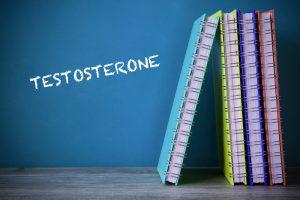 disease.
disease.
Do the math.
This adds up to a 12.4 increased mortality risk for those who did not receive testosterone replacement!
Also, there were twenty-six non-lethal heart attacks and thirty non-fatal strokes in the group not receiving TRT as opposed to ZERO non-fatal heart attacks or strokes in the men undergoing testosterone replacement.
And That’s Not All
The other health components that were measured in both groups produced similar results.
The testosterone-treated group experienced a decline in hemoglobin A1c levels from 6.9% at the outset of the study to 5.6% and glucose levels plummeted.
By contrast, the non-testosterone treated group showed an increase in hemoglobin A1c and their fasting glucose levels remained unchanged.
Finally, the systolic and diastolic blood pressure levels, heart rate, entire cholesterol, low-density lipoprotein (LDL) cholesterol levels, non-high-density lipoprotein cholesterol levels, triglycerides, and liver enzymes all decreased in the testosterone replacement therapy group.
Conversely, in the non-testosterone treated group, the numbers went in the opposite direction: up.
Dr. Traish continued his summation: “These reports, together with the meta-analysis published by Corona et al. and the FDA response to the petition to place a black box on testosterone products, suggest that no credible or substantial evidence exists for increased cardiovascular risk with testosterone therapy. Our findings which span more than eight years with a significant number of patients also confirm this premise. Thus, we point out that the earlier reports that purported increased cardiovascular risk with testosterone therapy are confounded by methodological flaws and without adequate clinical understanding that makes them inconclusive, and at best suspect, in their conclusions.”
The conclusion of the study is clear: Long-term testosterone replacement therapy was well tolerated with the men who followed the routine strictly.
The patients were quite satisfied with the results, and the best news of all was the reduction in mortality that was linked to cardiovascular disease in the testosterone group.
What This Means to You
To put it straightforwardly and directly, testosterone replacement therapy is not the frightening threat described by the radio and television commercials produced by personal injury law firms hoping to cash in on unrealistic fear and a continued barrage of disinformation.
 The reality is this: the real risk is a lack of testosterone. Here are a few of the results that low testosterone levels (“Low-T”) can cause:
The reality is this: the real risk is a lack of testosterone. Here are a few of the results that low testosterone levels (“Low-T”) can cause:
- Energy-draining, chronic fatigue
- Joint aches and pains
- Loss of muscle strength and tone
- A steady accumulation of ugly, disease-producing slabs of blubber, especially around your midsection
- Weakened, brittle bones. This horrible affliction affects both men and women. All of us need to keep our bones strong regardless of gender
- Diminished libido and erectile dysfunction
- Brain fog. Low testosterone often results in diminished cognitive function and a maddening declining memory
- Insomnia and a loss of the ability to obtain a deep, restorative sleep
- Cardiovascular problems. Low testosterone levels are directly related to an increased risk of heart attack and early mortality
- Dry, wrinkled skin. As you age, it becomes harder for your skin to retain moisture. However, low testosterone makes this problem worse, especially if you suffer from psoriasis
- And more health problems...much more
But it Doesn’t Have to Be This Way
There was a time that you had to passively sit back and accept the deterioration of your body as you age.
Your family, your friends, and even your doctor would echo the standard thought of “it’s due to your age, and that’s just something you’ll have to live with.”
Maybe you would get a prescription for pain or insomnia and be sent on your way.
But no more.
Now there is help available.
And it’s not just testosterone replacement therapy.
There is another hormone that can add to your anti-aging and health toolbox.
Testosterone and Human Growth Hormone (HGH)
These two hormones have many similarities.
They are, of course, different hormones with various chemical structures.
But they both can deliver compelling 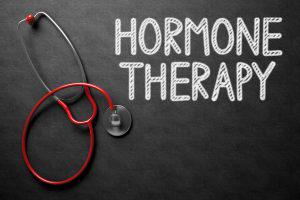 benefits when taken separately.
benefits when taken separately.
When combined, they turn into a powerhouse tag-team that provides synergistic benefits with one goal in mind: keeping you healthy and resistant to the ravages of aging.
When working together, they are a winning team.
Why are These Hormones Crucial for Your Health?
Let’s take a look at the benefits that both testosterone and growth hormone can deliver:
- A massive boost in your energy levels. This alone would make the treatments worthwhile
- See your muscle magically start to awaken, strengthen, and grow again. Both testosterone and growth hormone feed the muscle tissue and cells. A diminishing of these two hormones as you become older plays a huge role in muscle weakness. But TRT and growth hormone replacement will reverse these trends
- Shed the pounds. Among Aging's many unwanted gifts is the ability to accumulate fat, especially around your midsection. Again, as with your weakened muscles, the same two culprits of low testosterone and growth hormone levels are responsible for this as well
- Regain your mental sharpness. Put brain fog in your rear-view mirror. Some patients have reported that these hormone replacements have sped up their
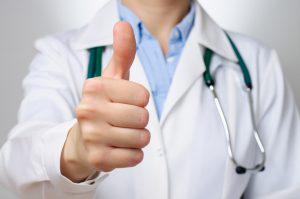 brain functioning. One of the symptoms of aging is a slowdown of brain processing speed. With your testosterone and growth hormone levels elevated back to their healthy, youthful levels, this problem will disappear
brain functioning. One of the symptoms of aging is a slowdown of brain processing speed. With your testosterone and growth hormone levels elevated back to their healthy, youthful levels, this problem will disappear - Zap joint pain. When your joints are aching, it is hard to do much of anything. This makes it easy to stay on the recliner, thus making a bad situation worse. Hormone restoration will stop this nagging pain and put a halt to swallowing handfuls of potentially harmful pain pills
- Strengthen your bones. Falling is never something to take lightly. But for older people, it is life-altering or worse. Don’t let this happen to you
- Beef up your immune system. If you’re sick of being sick and catching colds with depressing regularity, stop complaining about it. Do something about it -- balance your declining hormone levels and give your immune system the support it needs to fight off disease and infection
- Enjoy a mood boost. If you’re perpetually tired, miserable, and cranky, depression is a natural result. When you experience the feeling of growth hormone and testosterone surging through your veins, your depression will evaporate like fog on a sunny morning
- Watch your libido come roaring back. No need to elaborate on this benefit
- Enjoy deep, restorative sleep, night-after-night. When your hormones are balanced, you will find it easy to fall asleep and stay asleep for the duration of the night.
Remember, testosterone and growth hormone replacement therapies, when combined, double the benefits that they provide individually.
They work together and when combined deliver a beneficially synergistic effect.
An increase in HGH translates into a rise in testosterone.
Likewise, if your testosterone levels increase your growth hormone levels will follow as well.
But Don’t Try This at Home
To be effective, you must replace testosterone and growth hormone with medically-supervised precision.
Too little of either will not produce the results you are looking for.
Too much can lead to serious adverse side effects: gynecomastia (male breasts), acne, unwanted growth and possibly even cancer.
Our clinic will ensure that the hormone replacement you receive is tailor-made and designed precisely for you.
The Answer is Secretagogues
A secretagogue is a substance that causes another element to be secreted.
Growth hormone secretagogues (GSH’s) are a category of drugs which secrete 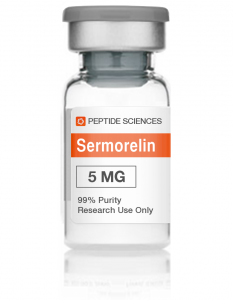 growth hormone.
growth hormone.
Another way to describe GSH’s is to consider them as growth hormone receptors for smaller amino acid peptides that could cause GSH’s to release growth hormone.
Secretagogues are powerful hormone boosters that work naturally.
Our clinic will work to design the right program for you.
A program that safely delivers maximum results.
Call us for a free, no-obligation consultation to discuss the many treatment options we offer.
Reference
Contact Us Today For A Free Consultation

- Adverse Effects of Testosterone Therapy in Adult Men: A Systematic Review and Meta-Analysis [Last Updated On: July 2nd, 2024] [Originally Added On: June 4th, 2010]
- Low Testosterone Levels, Foods That Increase Testosterone Levels wwwSelf-Improvement-Bible.com [Last Updated On: November 12th, 2023] [Originally Added On: May 30th, 2011]
- Low Testosterone in Men: The Next Big Thing in Medicine! - Abraham Morgentaler, MD [Last Updated On: May 7th, 2023] [Originally Added On: June 3rd, 2011]
- How To Determine Testosterone Levels By Looking At Your Ring Finger [Last Updated On: December 7th, 2017] [Originally Added On: June 30th, 2011]
- Prolab Horny Goat Weed Testosterone Booster Supplement Review [Last Updated On: November 23rd, 2023] [Originally Added On: July 19th, 2011]
- The Healthy Skeptic: Products make testosterone claims [Last Updated On: August 13th, 2024] [Originally Added On: September 11th, 2011]
- How To Naturally Increase Testosterone [Last Updated On: November 21st, 2023] [Originally Added On: September 28th, 2011]
- Testosterone Production - Video [Last Updated On: November 25th, 2024] [Originally Added On: November 20th, 2011]
- Testosterone makes us less cooperative and more egocentric, study finds [Last Updated On: January 23rd, 2018] [Originally Added On: February 1st, 2012]
- Testosterone makes us less cooperative and more egocentric [Last Updated On: January 24th, 2018] [Originally Added On: February 1st, 2012]
- Too much testosterone makes for bad decisions, tests show [Last Updated On: April 30th, 2025] [Originally Added On: February 1st, 2012]
- Today in Research: Testosterone's Negative Effects; Diet Soda Death [Last Updated On: January 2nd, 2018] [Originally Added On: February 2nd, 2012]
- Testosterone drives ego, trips cooperation [Last Updated On: December 2nd, 2017] [Originally Added On: February 4th, 2012]
- FDA approves BioSante/Teva's testosterone gel [Last Updated On: April 28th, 2025] [Originally Added On: February 15th, 2012]
- 'Manly' Fingers Make For Strong Jawline in Young Boys [Last Updated On: December 1st, 2017] [Originally Added On: February 15th, 2012]
- Teva, BioSante Win U.S. Approval for Testosterone Therapy [Last Updated On: December 10th, 2017] [Originally Added On: February 15th, 2012]
- BioSante Gains on Approval of Testosterone Gel: Chicago Mover [Last Updated On: January 8th, 2018] [Originally Added On: February 16th, 2012]
- BioSante soars following drug approval from FDA [Last Updated On: December 26th, 2017] [Originally Added On: February 16th, 2012]
- Antibodies, Not Hard Bodies: The Real Reason Women Drool Over Brad Pitt [Last Updated On: December 24th, 2017] [Originally Added On: February 21st, 2012]
- Almark Publishing Releases Book From Mark Rosenberg, M.D. Revealing Natural Discoveries Associated With Low ... [Last Updated On: May 3rd, 2025] [Originally Added On: February 28th, 2012]
- Testosterone Replacement Clinic Comes to Kansas City with Potential to Help Thousands of Men [Last Updated On: May 2nd, 2025] [Originally Added On: March 1st, 2012]
- Study examines the relative roles of testosterone and its metabolite, dihydrotestosterone in men [Last Updated On: December 2nd, 2017] [Originally Added On: March 7th, 2012]
- The Role of 5{alpha}-Reductase Inhibition in Men Receiving Testosterone Replacement Therapy [Editorial] [Last Updated On: December 21st, 2017] [Originally Added On: March 7th, 2012]
- Effect of Testosterone Supplementation With and Without a Dual 5{alpha}-Reductase Inhibitor on Fat-Free Mass in Men ... [Last Updated On: January 3rd, 2018] [Originally Added On: March 7th, 2012]
- Why We Like Men Who Can Keep Their Cool [Last Updated On: December 30th, 2017] [Originally Added On: March 7th, 2012]
- Testosterone And Heart Health [Last Updated On: May 1st, 2025] [Originally Added On: March 10th, 2012]
- Your Life on Testosterone: Overly Sure of Yourself, Unwilling to Listen [Last Updated On: November 25th, 2018] [Originally Added On: March 15th, 2012]
- Mayo Clinic-TGen study role testosterone may play in triple negative breast cancer [Last Updated On: December 8th, 2017] [Originally Added On: March 23rd, 2012]
- A dose of testosterone might not cure what ails you [Last Updated On: January 23rd, 2018] [Originally Added On: March 25th, 2012]
- Green tea could aid athletes hide testosterone doping [Last Updated On: December 16th, 2017] [Originally Added On: March 25th, 2012]
- TGen Study Role Testosterone May Play in Triple Negative Breast Cancer [Last Updated On: December 6th, 2017] [Originally Added On: March 26th, 2012]
- Testosterone low, but responsive to competition, in Amazonian tribe [Last Updated On: January 23rd, 2018] [Originally Added On: March 28th, 2012]
- Competition-linked bursts of testosterone are fundamental aspect of human biology, study of Amazonian tribe suggests [Last Updated On: December 25th, 2017] [Originally Added On: March 28th, 2012]
- Playing football boosts testosterone levels by 30 percent! [Last Updated On: February 4th, 2024] [Originally Added On: March 28th, 2012]
- Testosterone low, but responsive to competition, in Amazonian tribe -- with slideshow [Last Updated On: December 9th, 2017] [Originally Added On: March 28th, 2012]
- The benefits of testosterone pellet therapy [Last Updated On: January 24th, 2018] [Originally Added On: March 29th, 2012]
- Low testosterone levels cause health woes [Last Updated On: November 25th, 2018] [Originally Added On: March 30th, 2012]
- Heart Failure Patients Getting Relief from Testosterone Supplements [Last Updated On: May 5th, 2025] [Originally Added On: April 21st, 2012]
- Study Finds Fatherhood Suppresses Testosterone [Last Updated On: May 4th, 2025] [Originally Added On: May 3rd, 2012]
- Low testosterone levels could raise diabetes risk for men [Last Updated On: January 26th, 2018] [Originally Added On: May 5th, 2012]
- Why low testosterone may increase your risk of diabetes [Last Updated On: November 25th, 2024] [Originally Added On: May 5th, 2012]
- Diabetes link to low testosterone [Last Updated On: November 25th, 2024] [Originally Added On: May 5th, 2012]
- Testosterone Linked to Weight Loss in Obese Men [Last Updated On: January 2nd, 2018] [Originally Added On: May 11th, 2012]
- Testosterone may help weight loss [Last Updated On: November 25th, 2024] [Originally Added On: May 11th, 2012]
- Testosterone-fuelled infantile males might be a product of Mom's behaviour [Last Updated On: December 25th, 2017] [Originally Added On: May 11th, 2012]
- Testosterone-fueled infantile males might be a product of Mom's behavior [Last Updated On: January 6th, 2018] [Originally Added On: May 11th, 2012]
- Testosterone supplements may help obese men lose weight [Last Updated On: January 5th, 2018] [Originally Added On: May 11th, 2012]
- Testosterone supplements 'can help men lose their middle-aged spread' [Last Updated On: November 25th, 2024] [Originally Added On: May 12th, 2012]
- Some doctors question safety of testosterone replacement therapy [Last Updated On: January 20th, 2018] [Originally Added On: May 15th, 2012]
- Health Canada Approves New Testosterone Topical Solution for Men [Last Updated On: May 15th, 2025] [Originally Added On: May 15th, 2012]
- Environment trumps genes in testosterone levels, study finds [Last Updated On: May 8th, 2025] [Originally Added On: May 15th, 2012]
- Global Testosterone Replacement Therapy (TRT) Industry [Last Updated On: May 7th, 2025] [Originally Added On: May 21st, 2012]
- Testosterone Fuels Boom, Swindler Sows Panic: Top Business Books [Last Updated On: January 13th, 2018] [Originally Added On: June 2nd, 2012]
- Increase in testosterone drug use [Last Updated On: April 12th, 2018] [Originally Added On: June 4th, 2012]
- Testosterone Promotes Agression Automatically [Last Updated On: January 29th, 2018] [Originally Added On: June 9th, 2012]
- Testosterone shown to help sexually frustrated women [Last Updated On: January 27th, 2018] [Originally Added On: June 9th, 2012]
- Research and Markets: Testosterone Replacement Therapy (TRT) - Global Strategic Business Report [Last Updated On: December 23rd, 2017] [Originally Added On: June 12th, 2012]
- Proposed testosterone testing of some female olympians challenged by Stanford scientists [Last Updated On: January 30th, 2018] [Originally Added On: June 14th, 2012]
- Testosterone Makes Bosses Into Jerks, Says Paul Zak [Last Updated On: January 8th, 2018] [Originally Added On: June 14th, 2012]
- Testosterone Therapy: A Misguided Approach to Erectile Dysfunction (ED) [Last Updated On: May 10th, 2025] [Originally Added On: June 20th, 2012]
- New drugs, new ways to target androgens in prostate cancer therapy [Last Updated On: January 8th, 2018] [Originally Added On: June 20th, 2012]
- Long-term testosterone treatment for men results in reduced weight and waist size [Last Updated On: January 19th, 2018] [Originally Added On: June 23rd, 2012]
- Declining testosterone levels in men not part of normal aging, study finds [Last Updated On: December 27th, 2017] [Originally Added On: June 23rd, 2012]
- Low testosterone not normal part of aging [Last Updated On: December 22nd, 2017] [Originally Added On: June 25th, 2012]
- Testosterone Does Not Necessarily Wane With Age [Last Updated On: December 6th, 2017] [Originally Added On: June 25th, 2012]
- Overweight men can boost low testosterone levels by losing weight [Last Updated On: December 10th, 2017] [Originally Added On: June 25th, 2012]
- Testosterone-replacement therapy improves symptoms of metabolic syndrome [Last Updated On: January 14th, 2018] [Originally Added On: June 26th, 2012]
- Testosterone therapy takes off pounds [Last Updated On: December 11th, 2017] [Originally Added On: June 26th, 2012]
- Weight loss may boost men's testosterone [Last Updated On: May 9th, 2025] [Originally Added On: June 27th, 2012]
- Low Testosterone? Study finds age may not be to blame [Last Updated On: May 12th, 2025] [Originally Added On: July 1st, 2012]
- Do you have low testosterone? [Last Updated On: December 15th, 2017] [Originally Added On: July 8th, 2012]
- Wall Streeters Buying Testosterone for an Edge [Last Updated On: May 11th, 2025] [Originally Added On: July 12th, 2012]
- Beefy Wall Street Traders rub on testosterone [Last Updated On: February 20th, 2024] [Originally Added On: July 12th, 2012]
- Tale of two runners exposes flawed Olympic thinking [Last Updated On: December 23rd, 2024] [Originally Added On: July 19th, 2012]
- Genetic markers for testosterone and estrogen level regulation identified [Last Updated On: January 6th, 2018] [Originally Added On: July 20th, 2012]
- BUSM researchers identify genetic markers for testosterone, estrogen level regulation [Last Updated On: December 18th, 2017] [Originally Added On: July 20th, 2012]
- DRS. OZ AND ROIZEN: How to reap the benefits of normal testosterone levels [Last Updated On: December 23rd, 2024] [Originally Added On: July 21st, 2012]
- How Testosterone Drives History [Last Updated On: December 24th, 2024] [Originally Added On: July 22nd, 2012]
- Testosterone replacement is "fountain of youth" for men [Last Updated On: January 3rd, 2018] [Originally Added On: July 27th, 2012]
- Pill for low testosterone in men heads for phase II clinical trials [Last Updated On: December 31st, 2017] [Originally Added On: August 2nd, 2012]
Word Count: 1706










